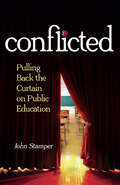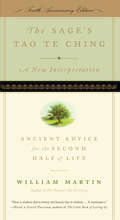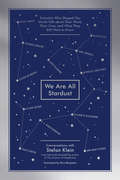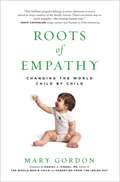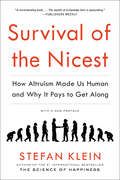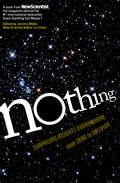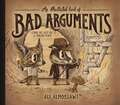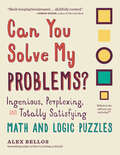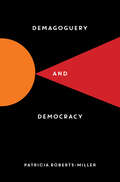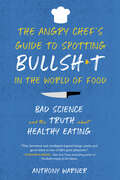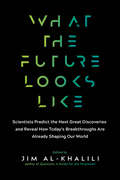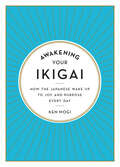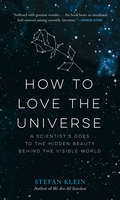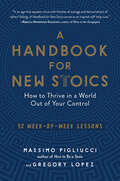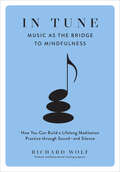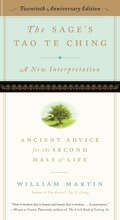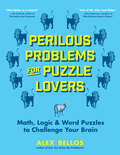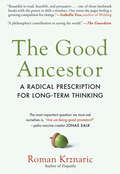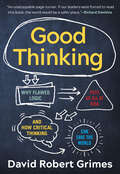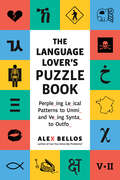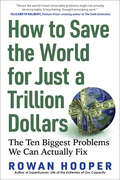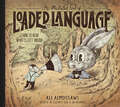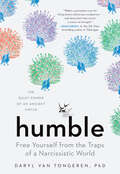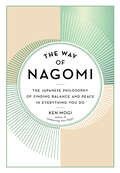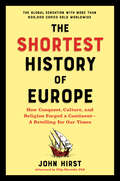- Table View
- List View
Conflicted: Pulling Back the Curtain on Public Education
by John StamperAt what point can a Christian teacher no longer be part of a public education system that requires them to participate in teaching destructive ideologies and advancing immoral agendas on young children? John Stamper reached that tipping point as a teacher in the Chicago Public School System and made the decision to quit his job and pull back the curtain on what’s happening in public schools today. You’ve seen the stories on the news – our national education system has an agenda, being implemented under the guise of fairness, equality, and racial justice to children. However, this book will open your eyes to: The indoctrination process through mandatory teacher training that implements these radical ideologies in schools without parental knowledge The danger and division created by critical race theory and gender theory being promoted in public schools How Marxist, socialist, and communist ideologies are dominating public schools, and how you move forward with homeschooling your children For generations, teachers have been excellent role models, investing their time and energy into fundamental lessons. However, today a growing number think they, the school board, and their school system know more than parents about what should be taught to students. You need to know what is going on in your child’s school and be prepared for the conflict of values that you may have to face. You have options.
The Sage's Tao Te Ching, Tenth Anniversary Edition: Ancient Advice for the Second Half of Life
by William Martin Chungliang Al Huang Hank TusinskiThe tenth anniversary edition of William Martin’s free-verse interpretation of the Tao Te Ching, written expressly for those coming into the fullness of their wisdomLao Tzu’s Tao Te Ching, one of the world’s most widely read books of wisdom, reminds its readers that the sage has been venerated in China for thousands of years. In this free-verse interpretation of the Tao, William Martin subtly and powerfully captures the complex emotions connected with growing older. He encourages today’s sages to recognize their inestimable worth in a youth-centric world that often goes astray: “Will I be able to harvest my life in compassion and love for the world? Will I find in my own heart the wisdom for which I long? This question trumps all others for me. I suspect it is the same for you.”
We Are All Stardust: Scientists Who Shaped Our World Talk about Their Work, Their Lives, and What They Still Want to Know
by Ross Benjamin Stefan Klein“What distinguishes scientists, in your eyes?”—Stefan Klein“First and foremost, curiosity.”—Roald Hoffmann, Nobel Prize–winning chemistWhen Stefan Klein, an acclaimed journalist, sits down to talk with 18 of the world’s leading scientists, he finds they’re driven by, above all, curiosity. When they talk about their work, they turn to what’s next, to what they still hope to discover. And they see inspiration everywhere: From the sports car that physicist Steven Weinberg says helped him on his quest for “the theory of everything” to the jazz musicians who gave psychologist Alison Gopnik new insight into raising children, they reveal how their paradigm-changing work entwines with their lives outside the lab. We hear from extraordinary natural and social scientists, including:Evolutionary biologist Richard Dawkins on ego and selflessnessPrimatologist Jane Goodall on chimpanzee behaviorNeuroscientist V. S. Ramachandran on consciousnessGeographer Jared Diamond on chance in historyAnthropologist Sarah Hrdy on motherhoodAnd cosmologist Martin Rees on how “ultimately we ourselves are stardust.”
Roots of Empathy: Changing The World Child By Child
by Mary GordonThe acclaimed program for fostering empathy and emotional literacy in children—with the goal of creating a more civil society, one child at a time Roots of Empathy—an evidence-based program developed in 1996 by longtime educator and social entrepreneur Mary Gordon—has already reached more than a million children in 14 countries, including Canada, the US, Japan, Australia, and the UK. Now, as The New York Times reports that “empathy lessons are spreading everywhere amid concerns over the pressure on students from high-stakes tests and a race to college that starts in kindergarten,” Mary Gordon explains the value of and how best to nurture empathy and social and emotional literacy in all children—and thereby reduce aggression, antisocial behavior, and bullying.
Survival of the Nicest: How Altruism Made Us Human and Why It Pays to Get Along
by Stefan KleinAward-winning, international bestselling science writer Stefan Klein explores the benefits of altruism on humanity in Survival of the Nicest.The phrase “survival of the fittest” conjures an image of the most cutthroat individuals rising to the top. But Stefan Klein, author of The Science of Happiness, makes the startling assertion that altruism is the key to lasting personal and societal success. In fact, altruism defines us: Natural selection favored those early humans who cooperated in groups, and with survival more assured, our altruistic ancestors were free to devote brainpower to developing intelligence, language, and culture—our very humanity. Klein’s groundbreaking findings lead him to a vexing question: If we’re really hard-wired to act for one another’s benefit, why aren’t we all getting along? He believes we’ve learned to mistrust our instincts because success is so often attributed to selfish ambition, and with an extraordinary array of material—current research on genetics and the brain, economics, social psychology, behavioral and anthropological experiments, history, and modern culture—he makes the case that generosity for its own sake remains the best way to thrive.“Stefan Klein, an enticing storyteller, marshals the evidence for the value of altruism—not only to one’s family but, much more interestingly, to one’s self and one’s tribe. Altruism is truly contagious!” —Roald Hoffman, Nobel Laureate“A scholarly tour de force about why generosity makes good sense, Survival of the Nicest is also compulsively readable. Klein argues convincingly that helping others is one of the best things we can do for ourselves.” —Elizabeth Svoboda, author of What Makes a Hero?: The Surprising Science of Selflessness
Nothing: Surprising Insights Everywhere from Zero to Oblivion
by David Fisher Paul Davies Ian Stewart Michael Brooks David Harris Jo Marchant Linda Geddes Jonathan Knight Nigel Henbest Stephen Battersby Marcus Chown Laura Spinney Michael de Podesta NewScientist Douglas Fox Per Eklund Valerie Jamieson Rick A. Lovett Andy CoghlanThe writers behind New Scientist explore the baffling concept of nothingness from the fringes of the universe to our minds&’ inner workings. It turns out that nothing is as curious or as enlightening as nothingness itself. What is nothing? Where can it be found? The writers of the world&’s top-selling science magazine investigate—from the big bang, dark energy, and the void, to superconductors, vestigial organs, hypnosis, and the placebo effect. And they discover that understanding nothing may be the key to understanding everything: What came before the big bang—and will our universe end?How might cooling matter down almost to absolute zero help solve our energy crisis?How can someone suffer from a false diagnosis as though it were true?Does nothingness even exist if squeezing a perfect vacuum somehow creates light?Why is it unfair to accuse sloths—animals who do nothing—of being lazy?And more! Contributors Paul Davies, Jo Marchant, and Ian Stewart, along with two former editors of Nature and sixteen other leading writers and scientists, marshal up-to-the-minute research to make one of the most perplexing realms in science dazzlingly clear. Prepare to be amazed at how much more there is to nothing than you ever realized.
An Illustrated Book of Bad Arguments: Learn The Lost Art Of Making Sense (Bad Arguments #0)
by Ali Almossawi“This short book makes you smarter than 99% of the population. . . . The concepts within it will increase your company’s ‘organizational intelligence.’. . . It’s more than just a must-read, it’s a ‘have-to-read-or-you’re-fired’ book.”—Geoffrey James, INC.com From the author of An Illustrated Book of Loaded Language, here’s the antidote to fuzzy thinking, with furry animals! Have you read (or stumbled into) one too many irrational online debates? Ali Almossawi certainly had, so he wrote An Illustrated Book of Bad Arguments! This handy guide is here to bring the internet age a much-needed dose of old-school logic (really old-school, a la Aristotle). Here are cogent explanations of the straw man fallacy, the slippery slope argument, the ad hominem attack, and other common attempts at reasoning that actually fall short—plus a beautifully drawn menagerie of animals who (adorably) commit every logical faux pas. Rabbit thinks a strange light in the sky must be a UFO because no one can prove otherwise (the appeal to ignorance). And Lion doesn’t believe that gas emissions harm the planet because, if that were true, he wouldn’t like the result (the argument from consequences). Once you learn to recognize these abuses of reason, they start to crop up everywhere from congressional debate to YouTube comments—which makes this geek-chic book a must for anyone in the habit of holding opinions.
Can You Solve My Problems?: Ingenious, Perplexing, And Totally Satisfying Math And Logic Puzzles (Alex Bellos Puzzle Books #0)
by Alex BellosPuzzle lovers, rejoice! Bestselling math writer Alex Bellos has a challenge for you: 125 of the world’s best brainteasers from the last two millennia. Armed with logic alone, you’ll detect counterfeit coins, navigate river crossings, and untangle family trees. Then—with just a dash of high school math—you’ll tie a rope around the Earth, match wits with a cryptic wizard, and use four 4s to create every number from 1 to 50. (It can be done!) The ultimate casebook for daring puzzlers, Can You Solve My Problems? also tells the story of the puzzle—from ancient China to Victorian England to modern-day Japan. Grab your pencil and get puzzling!
Demagoguery and Democracy
by Patricia Roberts-MillerA clear-eyed guide to demagoguery—and how we can defeat it What is demagoguery? Some demagogues are easy to spot: They rise to power through pandering, charisma, and prejudice. But, as professor Patricia Roberts-Miller explains, a demagogue is anyone who reduces all questions to us vs. them. Why is it dangerous? Demagoguery is democracy’s greatest threat. It erodes rational debate, so that intelligent policymaking grinds to a halt. The idea that we never fall for it—that all the blame lies with them—is equally dangerous. How can we stop it? Demagogues follow predictable patterns in what they say and do to gain power. The key to resisting demagoguery is to name it when you see it—and to know where it leads.
The Angry Chef's Guide to Spotting Bullsh*t in the World of Food: Bad Science And The Truth About Healthy Eating
by Anthony WarnerJust say no to nutri-nonsense Why is Chef Anthony Warner so angry? Two words: pseudoscience bullshit. Lies about nutrition are repeated everywhere—in newspaper headlines, on celebrity blogs, even by our well-meaning friends and family. Bad science is no reason to give up good food (we miss you, bread)! It’s high time to distinguish fact from crap. As the Angry Chef, Warner skewers common food myths that range from questionable (“coconut oil is a weight-loss miracle”) to patently dangerous (“autism is caused by toxins”). He also cuts down a host of fad diets—including the paleo diet and the infamous detox. Warner goes on to explain why we’re so easily misled: It has a lot to do with our instinctive craving for simple explanations and straightforward rules. With help from “Science Columbo,” he pares away poisonous rhetoric and serves up the delicious, nuanced truth (with a side of saucy humor). Bon appétit!
What the Future Looks Like: Scientists Predict the Next Great Discoveries and Reveal How Today's Breakthroughs Are Already Shaping Our World
by Jim Al-KhaliliGet the science facts, not science fiction, on the cutting-edge developments that are already changing the course of our future.Every day, scientists conduct pioneering experiments with the potential to transform how we live. Yet it isn’t every day you hear from the scientists themselves! Now, award–winning author Jim Al–Khalili and his team of top-notch experts explain how today’s earthshaking discoveries will shape our world tomorrow—and beyond.Pull back the curtain on: genomicsroboticsAIthe “Internet of Things”synthetic biologytranshumanisminterstellar travelcolonization of the solar systemteleportationand much moreAnd find insight into big–picture questions such as:Will we find a cure to all diseases? The answer to climate change? And will bionics one day turn us into superheroes?The scientists in these pages are interested only in the truth—reality-based and speculation-free. The future they conjure is by turns tantalizing and sobering: There’s plenty to look forward to, but also plenty to dread. And undoubtedly the best way to for us to face tomorrow’s greatest challenges is to learn what the future looks like—today.Praise for What the Future Looks Like“A collection of mind-boggling essays that are just the thing for firing up your brain cells.” —Saga Magazine“The predictions and impacts are global . . . [and] the book contains far more fascinating information than can be covered in this review.” —Choice“This book is filled with essays from experts offering their informed opinions on what the science and technology of today will look like in the future, from smart materials to artificial intelligence to genetic editing.” —Popular Science“Fun is an understatement. This is a great collection to get the summer book season started.” —Forbes.com“The focus on sincere, factual presentation of current and future possibilities by leading experts is particularly welcome in this era of fake news and anti-science rhetoric.” —Library Journal
Awakening Your Ikigai: How The Japanese Wake Up To Joy And Purpose Every Day
by Ken Mogi“Awakening Your Ikigai is really quite a delightful look at sometimes mystifying Japanese traditions.”—The New York Times Book Review Introducing IKIGAI: find your passions and live with joy Ikigai is a Japanese phenomenon commonly understood as “your reason to get up in the morning.” Ikigai can be small moments: the morning air, a cup of coffee, a compliment. It can also be deep convictions: a fulfilling job, lasting friendships, balanced health. Whether big or small, your ikigai is the path to success and happiness in your own life. Author Ken Mogi introduces five pillars of ikigai to help you make the most of each day and become your most authentic self: 1. starting small › focus on the details 2. releasing yourself › accept who you are 3. harmony and sustainability › rely on others 4. the joy of little things › appreciate sensory pleasure 5. being in the here and now › find your flow. Weaving together insights from Japanese history, philosophy, and modern culture, plus stories from renowned sushi chef Jiro Ono, anime filmmaker Hayao Miyazaki, and others, Mogi skillfully shows the way to awaken your ikigai.
How to Love the Universe: A Scientist's Odes to the Hidden Beauty Behind the Visible World
by Stefan KleinAn eye-opening celebration of the marvels of space, time, the cosmos, and moreHow to Love the Universe is a new kind of science writing by an author truly enamored of the world around him. In ten short chapters of lyrical prose—each one an ode to a breathtaking realm of discovery—Stefan Klein uses everyday objects and events as a springboard to meditate on the beauty of the underlying science. Klein sees in a single rose the sublime interdependence of all life; a day of stormy weather points to the world’s unpredictability; a marble conjures the birth of the cosmos. As he contemplates the deepest mysteries—the nature of reality, dark matter, humanity’s place among the galaxies, and more—Klein encourages us to fall in love with the universe the way scientists do: with a grasp of the key ideas and theories of twenty-first-century physics that bring to life the wonders of, really, everything. You won’t look at a rose—or at our world—the same way again.
A Handbook for New Stoics: How To Thrive In A World Out Of Your Control--52 Week-by-week Lessons
by Massimo Pigliucci Gregory LopezA pragmatic philosophy more popular than ever—here are 52 ancient lessons to help you overcome adversity and find tranquility in the modern world Stress often comes from situations that are beyond our control—such as preparing for a meeting, waiting for test results, or arguing with a loved one. But we can control our response to these everyday tensions—through the wisdom and practice of Stoicism. Stoicism is an ancient pragmatic philosophy that teaches us to step back, gain perspective, and act with intention. In A Handbook for New Stoics, renowned philosopher Massimo Pigliucci and seasoned practitioner Gregory Lopez provide 52 week-by-week lessons to help us apply timeless Stoic teachings to modern life. Whether you’re already familiar with Seneca and Marcus Aurelius, or you’re entirely new to Stoicism, this handbook will help you embrace challenges, thrive under pressure, and discover the good life!
In Tune: Music as the Bridge to Mindfulness
by Richard WolfIn our noisy world, music is the key to inner silence Richard Wolf first tried Zen meditation in his teens, but no matter in what posture or for how long he sat, transcendence proved stubbornly out of reach. It was only years later that he found the bridge that could take him there: music.In Tune charts twelve “bridges”—skills and sensibilities refined in musical practice that carry over to mindfulness and meditation, among them: ·Concentration ·Posture ·Harmony ·Silence ·The Art of Deep Listening ·Transcending the SelfThis inspirational guide offers a wealth of music-based exercises to enhance daily meditation and creativity. Plus, Wolf shares personal anecdotes of eminent musicians—from Miles Davis to Dr. Dre—to illuminate points along the intersection of music and mindful living. As you begin to move fluidly between these two transformative disciplines, you’ll notice the focus, composure, and peacefulness that comes from practice—as well as the joys of tuning in to the music all around you, and to the symphony that plays silently from within.
The Sage's Tao Te Ching, 20th Anniversary Edition (20th Anniversary): Ancient Advice For The Second Half Of Life
by William MartinThe twentieth anniversary edition of William Martin’s free-verse interpretation of the Tao Te Ching, written expressly for those coming into the fullness of their wisdom Lao Tzu’s Tao Te Ching reminds its readers that the sage has been venerated in China for thousands of years. Twenty years ago, William Martin subtly and powerfully captured the complex emotions connected with growing older in this free-verse interpretation of the Tao. His words resonate just as much now, encouraging today’s sages to recognize their inestimable worth in a youth-centric world that often goes astray: “If there is to be a transformation, it will be the sages among us who will show the way. The elders, the wisewomen, the shamans, the grandmothers, and the grandfathers will provide the guidance, for they have undergone the necessary initiations . . . and emerged into the spaciousness of simplicity, freedom, and joy.”
Perilous Problems for Puzzle Lovers: Math, Logic And Word Puzzles To Challenge Your Brain (Alex Bellos Puzzle Books #0)
by Alex BellosPut your wits—and survival instincts—to the test! Publisher’s Note: Perilous Problems for Puzzle Lovers was previously published in the UK under the title So You Think You’ve Got Problems? In Perilous Problems for Puzzle Lovers, Alex Bellos collects 125 of the world’s greatest stumpers—many dangerous to your person, and all dangerous to your pride. Brace yourself to wrestle with wordplay, grapple with geometry, and scramble for survival. For example . . . Ten lions and a sheep are in a pen. Any lion who eats the sheep will fall asleep. A sleeping lion will be eaten by another lion, who falls asleep in turn. If the lions are all perfect logicians, what happens? Bellos pairs his fiendish brainteasers with fascinating history, so you’ll meet Alcuin, Sam Loyd, and other puzzle masters of yore—in between deranged despots and wily jailers with an unaccountable taste for riddles. Will you make it out alive? And what about the sheep?
The Good Ancestor: A Radical Prescription For Long-term Thinking
by Roman KrznaricFrom leading philosopher Roman Krznaric, an urgent call to save ourselves and our planet by getting to the root of the current crisis—society’s extreme short-sightedness As heard on NPR’s TED Radio Hour When Jonas Salk developed the polio vaccine, he refused to patent it—forgoing profit so that more lives could be saved. His radical generosity to future generations should inspire us, but leading philosopher Roman Krznaric sees the opposite happening: Our short-term, exploitative mindsets have “colonized the future,” leaving an inexcusable chasm between the haves and have-nots—and mounting existential threats—that have brought our species to the precipice of disaster. Yet Krznaric sees reason to hope. The urgent struggle for intergenerational justice calls for hugely ambitious solutions, from rewiring our growth-at-all-costs economy to giving voters of future generations a voice in our democracies. But at the heart of all these changes is one we can enact within ourselves: We must trade shortsightedness for long-term thinking. In The Good Ancestor, Krznaric reveals six practical ways we can retrain our brains to think of the long view and to shift our allegiance from this generation to all humanity—to save our planet and our future.
Good Thinking: Why Flawed Logic Puts Us All At Risk And How Critical Thinking Can Save The World
by David Robert GrimesGood Thinking is our best defense against anti-vaccine paranoia, climate denial, and other dire threats of today Publisher’s Note: Good Thinking was previously published in the UK as The Irrational Ape. In our ever-more-polarized society, there’s at least one thing we still agree on: The world is overrun with misinformation, faulty logic, and the gullible followers who buy into it all. Of course, we’re not among them—are we? Scientist David Robert Grimes is on a mission to expose the logical fallacies and cognitive biases that drive our discourse on a dizzying array of topics–from vaccination to abortion, 9/11 conspiracy theories to dictatorial doublespeak, astrology to alternative medicine, and wrongful convictions to racism. But his purpose in Good Thinking isn’t to shame or place blame. Rather, it’s to interrogate our own assumptions–to develop our eye for the glimmer of truth in a vast sea of dubious sources–in short, to think critically. Grimes’s expert takedown of irrationality is required reading for anyone wondering why bad thinking persists and how we can defeat it. Ultimately, no one changes anyone else’s mind; we can only change our own–and give others the tools to do the same.
The Language Lover's Puzzle Book: A World Tour Of Languages And Alphabets In 100 Amazing Puzzles (Alex Bellos Puzzle Books #0)
by Alex Bellos100 wonder-filled word puzzles that thrill and tantalize with the beauty, magic, and weirdness of world language Whether you’re a crossword solver, cryptogram fan, Scrabble addict, or Sudoku savant, The Language Lover’s Puzzle Book is guaranteed to tease your brain and twist your tongue. Puzzle master Alex Bellos begins in Japan, where we can observe some curious counting: boru niko = two balls tsuna nihon = two ropes uma nito = two horses kami nimai = two sheets of paper ashi gohon = five legs ringo goko = five apples sara gomai = five plates kaba goto = five hippos Now, how do the Japanese say “nine cucumbers”?* a) kyuri kyuhon b) kyuri kyuko c) kyuri kyuhiki d) kyuri kyuto Bellos finds the intrigue—and the human element—in a dizzying array of ancient, modern, and even invented tongues, from hieroglyphs to Blissymbolics, Danish to Dothraki. Filled with unusual alphabets, fascinating characters, and intriguing local customs for time-telling, naming children, and more, this is a bravura book of brainteasers and beyond—it’s a globe-trotting, time-traveling celebration of language. *The word endings depend on shape: Flat things end in -mai and spherical things end in -ko. Cucumbers are long things (like ropes and legs), so they end in -hon. The answer is (a)!
How to Save the World for Just a Trillion Dollars: The Ten Biggest Problems We Can Actually Fix
by Rowan HooperWhat would you do with a trillion dollars? The ultimate thought experiment opens our eyes to ten world-changing ideas within our grasp If we can come up with a trillion dollars to bail out banks, imagine what else we could do. Science journalist Rowan Hooper decided to find out, speaking with experts of all kinds about ten incredibly ambitious projects that— if realized—would secure profound, enduring benefits: trying to end global poverty, reverse climate change, extend our lifespans, refreeze the Arctic, save all endangered species, and more. Then, he dives into strategies and costs to see: How far would $1 trillion really go? You’ll have to read on to learn which project he concludes would do the most good . . . but the biggest surprise is how many astonishing advances are actually within our grasp—if we dare to reach for them.
An Illustrated Book of Loaded Language: Learn To Hear What's Left Unsaid (Bad Arguments #0)
by Ali Almossawi Alejandro Giraldo“This is a book for every thinking person, the perfect antidote to today’s culture wars.”—Hope Jahren The creators of An Illustrated Book of Bad Arguments return with this desperately timely guide to how words can trick us. Learn to “hear” hidden bias, slant, and spin—from an irresistible cast of woodland creatures! Public discourse? More like public discord. The battle cries of our culture wars are rife with “loaded language”—be it bias, slant, or spin. But listen closely, or you’ll miss what Ali Almossawi finds more frightening still: words that erase accountability, history, even identity through what they leave unsaid. Speaking as wise old Mr. Rabbit, Almossawi leads us through a dark forest of rhetoric—aided by Orwell, Baldwin, and a squee-worthy cast of wide-eyed woodland creatures. Here, passive voice can pardon wrongdoers, statistics may be a smokescreen, gaslighting entraps the downtrodden, and irrelevant adjectives cement stereotypes. Emperor Squirrel isn’t naked; he has a clothes-free sartorial style. Mouse’s roof becomes flattened (Elephant’s foot just happens to be there at the time). And when keen-eyed Owl claims a foreign shore, he seems to be overlooking someone . . . Fans of Almossawi’s An Illustrated Book of Bad Arguments couldn’t ask for a better primer on the less logical ways that words can trick us. It takes a long pair of ears to hear what’s left unsaid—but when you’re a rabbit in a badger world, listening makes all the difference.
Humble: Free Yourself From The Traps Of A Narcissistic World
by Daryl Van TongerenA practical and philosophical deep dive into humility: how it can build confidence, foster honesty about our strengths and limitations, and help us achieve success Daryl Van Tongeren is a leading researcher on the science of humility. In Humble, he gives this unassuming trait a much-needed rebrand, explaining why the humble enjoy a more secure sense of self, handle challenges better, and, indeed, are often the people we like the most. That’s not to say Van Tongeren has mastered humility. (When he asked his wife to rate him on a scale from 1 to 10, she gave him a 4.) But in a world where narcissism is on the rise—where the shameless dominate social media and getting noticed is considered key to getting ahead—it’s not surprising that we all have a bit of work to do on our sometimes self-sabotaging egos. In its true sense, humbleness is the happy medium between self-denial and self-obsession: It grants the holder an accurate view of reality. By seeing where we have room to improve, we can grow. By admitting our doubts, we can learn. And by acknowledging our own worldview as one among many, we can truly connect with others despite our differences. A thought-provoking call to reexamine our values, Humble signals a paradigm shift—from the “self-esteem movement” run amok to a better world in which we lift up one another.
The Way of Nagomi: The Japanese Philosophy Of Finding Balance And Peace In Everything You Do
by Ken MogiFind balance and peace in every moment Life is ephemeral and ever-changing; in Japan, it’s called ukiyo—“floating world.” How can we adapt to its fluctuations without being overcome? The answer is nagomi: a philosophy of balance—and the secret to a harmonious life. Neuroscientist Ken Mogi shares wisdom from Japanese history and culture to explain how nagomi can help you: have happy relationships with loved ones who disagree engage with the natural world without diminishing its beauty strive for improvement while accepting imperfection strike a balance to achieve calm. If you’ve ever enjoyed a perfect bite of sushi—fresh fish, white rice, a hint of wasabi, maybe with a sip of sake—then you’ve already tasted what nagomi can achieve. Combining philosophy and advice, this book brings that balance into your health, work, relationships, and sense of self with nagomido—The Way of Nagomi!
The Shortest History of Europe: How Conquest, Culture, And Religion Forged A Continent--a Retelling For Our Times (Shortest History #0)
by James HirstUncover the decisive moments that shaped a world-changing continent. The Shortest History books deliver thousands of years of history in one riveting, fast-paced read. Celebrated historian John Hirst draws from his own lectures to deliver this ultra-accessible master class on the making of modern Europe, from Ancient Greece through World War II. With over 600,000 copies sold worldwide, this brief history is a global sensation propelled by a thesis of astonishing simplicity: Just three elements—German warfare, Greek and Roman culture, and Christianity—come together to explain everything else, from the Crusades to the Industrial Revolution. Hirst’s razor-sharp grasp of cause and effect helps us see with sparkling clarity how the history of Europe—the crucible of liberal democracy—shapes the way we live today.
